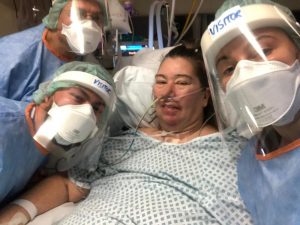This year’s theme is ‘Be Kind to your Mind’
• Be active – For your mental and emotional health, and wellbeing
• Be Mindful – Practise mindfulness, live in the present moment and look for the positives.
• Be Kind – Connect with others, be kind to yourself.
• Give to others – Perform random acts of kindness, volunteer and give to your local community.
• Keep Learning – Invest in your interests and hobbies.
• Talk kindly to yourself: Think about how you speak to your loved ones and use that voice on yourself.
• Practise gratitude, reflect daily, write a journal.
• Focus on self-care and be responsible for your wellbeing.
PROGRAMME OF EVENTS AND ACTIVITIES – BE KIND TO YOUR MIND
Saturday 5th October
10am – 4pm Community engagement stand in Epsom Marketplace, High St, Epsom KT19 8EB:
Come along and meet the Friends of Horton Cemetery on Saturday 5th and 12th October and pick a ceramic flower to plant in your garden. Last year we painted over 1000 flowers to Remember Epsom’s Forgotten Residents buried at Horton Cemetery, and we want to give the flowers back to the local community. Any donations that we receive for the flowers will support our future research into the
lives of the 9000 patients buried at the cemetery.
11am – 2pm Kids Art Club at Epsom Social, 1 Derby Square, Epsom KT19 8AG:
Join us for Colouring activities, create Be Kind bracelets and Seminal Events will be with us for face painting and henna tattoos
1pm Bodhi Eden, Epsom Yoga Studio – 29 Waterloo Road, Epsom KT19 8EX:
FREE taster sessions
Hatha Yoga Taster | 30mins | 13:00pm
Sound Bath Taster | 20mins | 13:40pm
please book via https://www.bodhieden.com/be-kind-tasters
Sunday 6th October
10.00am We Power On – Men’s Social Walk and Talk, meet outside the Rubbing House pub, on Epsom Downs (every Sunday unless otherwise advertised) at 9.50am for a 10am start.
10.15am Church service at St Barnabas Church, Temple Road, Epsom, KT19 8HA – Being Kind to Your Mind
2 – 4pm Free Kids Art and Craft Club at Epsom Social, Derby Square, Epsom KT19 8AG join us for Colouring activities, create Be Kind bracelets and Seminal Events will be with us for face painting and henna tattoos
Monday 7th October
10am – 1pm Drop-in service at Citizens Advice Epsom & Ewell, The Old Town Hall, The Parade, Epsom KT18 5AG
3 – 7pm Monday Drop-in at St Barnabas Church, Temple Road, Epsom, KT19 8HA
3.30pm Guided Mindfulness and Relaxation practice with This Little Yogini at St Barnabas Church, Temple Road, Epsom, KT19 8HA
4pm Be Kind to your Mind – Debbie Brewin, Consultant Therapist, Supervisor & Trainer at Mind-Growth Mastery at St Barnabas Church, Temple Road, Epsom, KT19 8HA
Tuesday 8th October
10am – 1pm Drop-in service at Citizens Advice Epsom & Ewell, The Old Town Hall, The Parade, Epsom KT18 5AG
2 – 4pm Talking Table at The Old Moat Garden Centre, Horton Lane, Epsom, KT19 8PQ
Come and join the team at The Old Moat Garden Centre for a cup of tea and piece of cake and find out what our Wellbeing Service has to offer, receive a free tour, or just come for a chat. We would love to meet you!
6 – 7.30pm Come and join The Include Choir Epsom at St Joseph’s Church, St Margaret’s Drive, Epsom, KT18 7JQ. The Include Choir provides social, musical and volunteering opportunities (for anyone age 16+), it also teaches inclusive Makaton signing and provides ‘joy and uplift’ which means you are ‘guaranteed to leave with a smile’.
Wednesday 9th October
9:45 – 11:45 Home-Start Epsom, Ewell and Banstead, Ewell Family Centre, Riverview Road, West Ewell, KT19 0JP. Dealing with Difficult Emotions workshop – this workshop is designed to help parents who may be struggling to manage or deal with their children’s emotions, providing emotional support and practical suggestions to make parenting just a little more manageable.
10am – 1pm Open day at the Forget-me-not Allotment at Appley House Care Home, Longmead Road, Epsom, KT19 9RX. Love Me Love Me Mind volunteers have been visiting the allotment weekly since early 2024 helping the staff and residents of the care home to use the space, planting flowers and vegetables, and making future plans for a sensory space.
5 – 7pm Open evening at CYP Haven Epsom. Visit our Focus youth centre, 9 Depot Road, Epsom, KT17 4RJ and meet the staff at the CYP Haven in Epsom. We will be serving Tea/Coffee and biscuits and look around, we then showcase our youth services at 5.30pm, followed by a Q&A with staff and find out how we support children’s mental health within the community. The CYP Haven is an open access wellbeing drop-in for young people aged 10-18 years. Working closely with local schools and CAHMS/Surrey CC services. Check out our website: cyphaven.net
7 – 8.30pm Grow & Glow – Epsom Methodist Church, Ashley Road, Epsom, KT18 5AQ. A woman’s only mental health support group. A place to grow, glow and connect with others No booking required to attend, just come as you are.
Thursday 10th October – World Mental Health Day
9.15am-10.15am Yoga for Wellbeing – The Horton Arts Centre, Haven Way, Epsom KT19 8NP (Doors open 9am) Start the day with a session of gentle yoga. Yoga teacher Louise Tozer will incorporate breathing techniques, sound and gentle movements into her class to improve self-awareness, flexibility and relaxation. This is an all-inclusive class, suitable for all levels. Wear comfortable clothing and bring layers. • Bring your own mat or use a towel or blanket if you don’t have a yoga mat. • Bring water
This session is normally £12 but for World Mental Health Day, the session will be freely open to all. Donations are welcome.
10am – 3pm Drop in service at Citizens Advice Epsom & Ewell, The Old Town Hall, The Parade, Epsom KT18 5AG
10am – 4pm Community engagement stand in Epsom Marketplace, High St, Epsom KT19 8EB. Come and get a FREE hug, a high five or a handshake! Join LMLMM and Age Concern Epsom & Ewell for a Delicious CAKE sale, and an opportunity to chat to two local charities.
5 – 6pm Join the Sunnybank drama group for a workshop about being kind, St Barnabas Church, Temple Road, Epsom, KT19 8HA
6pm – 7pm Let’s Talk Epsom Peer Support group at St Barnabas Church, Temple Road, Epsom, KT19 8HA
7 – 8pm Live Music performed by Steve Dyke, a trustee of LMLMM at St Barnabas Church, Temple Road, Epsom, KT19 8HA. Join us for an evening of stories and songs, written and performed by Steve. Some
funny, some poignant, some with themes from local history and a couple of singalong classics for everyone to join in. Refreshments are available, free entry with the option to donate on your way out if you feel you’ve been entertained. It promises to be a great evening, and we’d love to see you there.
Friday 11th October
10am – 12noon Advice Cafe at St Barnabas Church, Temple Road, Epsom, KT19 8HA – providing a space for our partners and groups to provide support, advice and care in a warm and welcoming environment. Action for Carers Surrey, Christians Against Poverty, Citizens Advice Epsom & Ewell, Epsom Foodbank, Epsom Primary Care Network, Love Me Love My Mind, Mary Frances Trust
10am – 12noon – Action for Carers Surrey – Find out more about Action For Carers and how we support unpaid carers throughout Surrey. You’ll also be able to meet one of our specialist mental health carer support advisers, whose role is to support unpaid carers who are looking after someone with poor mental health or substance issues.
Saturday 12th October
10am – 4pm Community engagement stand in Epsom Marketplace, High St, Epsom KT19 8EB
Come along and meet the Friends of Horton Cemetery on Saturday 5th and 12th October and pick a ceramic flower to plant in your garden. Last year we painted over 1000 flowers to Remember Epsom’s Forgotten Residents buried at Horton Cemetery, and we want to give the flowers back to the local community. Any donations that we receive for the flowers will support our future research into the
lives of the 9000 patients buried at the cemetery.
11am – 2pm Free Kids Art and Craft Club at Epsom Social, Derby Square, Epsom KT19 8AG – Join us for Colouring activities, create Be Kind bracelets and Seminal Events will be with us for face painting and henna tattoos
11am – 7pm Epsom Picturehouse, Epsom Square KT19 8AG. Join us for a Wellbeing Fun Day, in collaboration with Surrey Community Lounges, End Stigma Surrey, Epsom Library and hosted by Epsom Picturehouse – we’d love for you to be there! Come along for a day of community, connection, and fun!
Whether you’re in the mood for a friendly chat over tea, want to play some games, or need a quiet space to relax, there’s something for everyone. This special day will focus on celebrating wellness, sparking conversations around mental health, and showing you where to find support within the borough.
1pm Bodhi Eden, Epsom Yoga Studio – 29 Waterloo Road, Epsom KT19 8EX
FREE taster sessions
Yin Taster | 30mins | 13:00pm
Meditation Taster | 20mins | 13:40pm
Please book via https://www.bodhieden.com/be-kind-tasters
Sunday 13th October.
10am We Power On – Men’s Social Walk and Talk, meet outside the Rubbing House pub, on Epsom Downs (every Sunday unless otherwise advertised) at 9.50am for a 10am start.
2 – 4pm join us for Free Kids Art and Craft Club at Epsom Social, Derby Square, Epsom KT19 8AG











